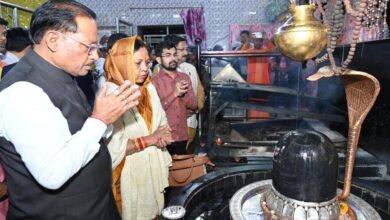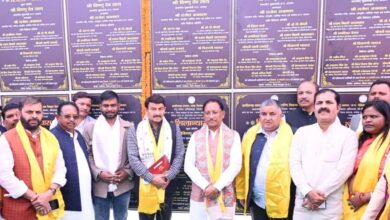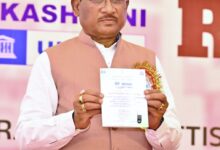TERI and the Netherlands Innovation Network Release White Paper onIndo-Dutch Bioeconomy Collaboration

A strategic roadmap to accelerate Indo-Dutch cooperation in sustainable bio-based innovation
New Delhi, June 03, 2025: The Energy and Resources Institute (TERI), in collaboration with the Netherlands Innovation Network, released a White Paper titled, “Towards a Greener Tomorrow: Indo-Dutch Opportunities for the Biotransition”. This joint effort outlines opportunities for India and the Netherlands to collaborate in building a sustainable and resilient bioeconomy.
Drawing on insights from the India-Netherlands Joint Innovation Mission Workshop and the Indo-Dutch Tech Summit, held in October 2024 and February 2025 respectively, the White Paper explores policy frameworks, growth projections, and emerging areas of synergy between the two nations, particularly in bioenergy, biochemicals, and bio-based materials.
The Paper reflects a shared vision for a low-carbon, circular economy powered by biological resources, offering pathways for industrial cooperation, technological exchange, and coordinated policy action.
Commenting on the White Paper, H.E. Marisa Gerards, Ambassador of the Netherlands to India, highlighted, “This report reflects the strong and evolving partnership between India and the Netherlands. By working together, we can turn our shared climate goals into practical, future-ready solutions in the bioeconomy space. The White Paper will be an instrument to reach our desired results.”
Counselor-Innovation Dr Dhoya Snijders, the Netherlands Embassy in India, remarked, “We launched this White Paper to highlight the growing opportunities in India’s bioeconomy—especially with the government’s focus on biomanufacturing and recent R&D initiatives. With greater international engagement, these efforts can have an even wider impact.”
From India’s perspective, the partnership aligns with national priorities on sustainable development and climate action. Dr Vibha Dhawan, Director General, TERI, highlighted, “The Netherlands is a global leader in the biotransition, harnessing its strengths in agriculture, biotechnology, and R&D to build a robust bioeconomy. As co-leads under the Mission Innovation platform, India and the Netherlands share a common vision to advance biorefineries and sustainable bio-based solutions. At TERI, our research supports this vision focusing on biofuels, biochemicals, and bio-commodities through a zero-waste, circular approach.”
Adding a scientific perspective, Dr Sanjukta Subudhi, Associate Director, Microbial Biofuels & Biochemicals, TERI, said, “The shift towards sustainable, bio-based solutions is not just about technology, it is about redefining how we grow and consume. With our focus on microbial bioprocessing, enzymatic innovations and innovative downstream recovery of biomolecules, we aim to support India’s biotransition and enable scalable, science-driven collaborations with Dutch partners.”
The global move towards a bio-based economy represents a fundamental transformation in how countries approach sustainability, innovation, and industrial development. Bioeconomy is more than a sector, it is an integrative approach that touches energy, health, agriculture, and manufacturing. With the global bioeconomy expected to generate up to $30 trillion by 2050, India stands as one of its most significant drivers, combining policy ambition with scientific capability and entrepreneurial momentum.
India’s biotransition goals align with its climate commitments and development agenda, calling for the use of renewable biological resources to meet growing demand for energy, materials, and chemicals. Through platforms such as the Global Biofuel Alliance (GBA), and through international partnerships, such as with the Netherlands, India is paving the way for scalable, nature-based industrial solutions.
This White Paper provides a roadmap for fostering cross-border innovation, shaping collaborative R&D agendas, and supporting business-led initiatives that can strengthen value chains in both countries. This study aims to serve as a valuable knowledge tool for policymakers, industries, and research institutions in identifying opportunities for Indo-Dutch collaboration while advancing joint ventures that contribute meaningfully to the global clean growth agenda







